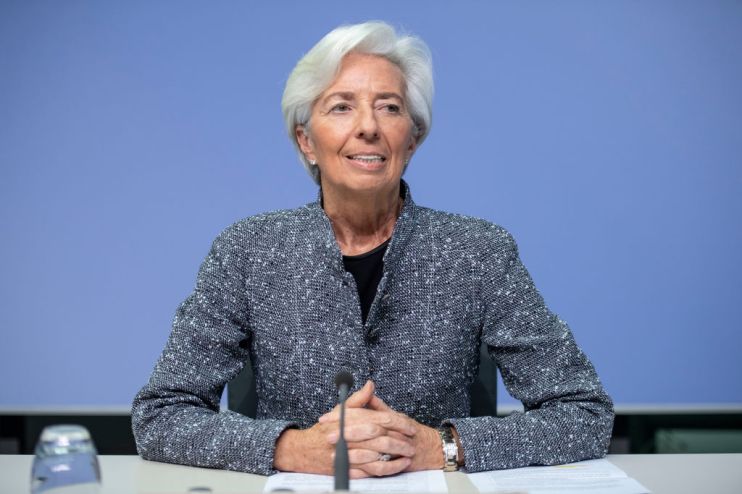European Central Bank holds interest rates as it eyes recovery

The European Central Bank (ECB) has left interest rates on hold at record lows and kept its huge bond-buying programme at its current size as it waits to see whether a Eurozone economic recovery takes hold.
The ECB left its key deposit rate at minus 0.5 per cent. It will continue its purchases under the pandemic emergency purchase programme (PEPP) with a total allowance of €1.35 trillion (£1.2 trillion).
Read more: ECB beefs up bond-buying to €1.35 trillion to boost Eurozone economy
“The ECB made its big decisions in June, leaving no real probability of a change in stance now,” said TD Securities analyst Jacqui Douglas in a note.
Last month, the central bank ramped up its bond buying by an enormous €600bn as it sought to stabilise the Eurozone economy and encourage lending.
Speaking after today’s decision, ECB president Christine Lagarde said economic indicators “showed a significant, though uneven and partial, recovery in May and June”.
Yet she said job losses and uncertainty about coronavirus itself “continue to weigh on consumer spending and on business investment”.
ECB holds fire amid Eurozone recovery
Danske Bank ECB and fixed income chief strategist Piet Haines Christiansen said: “Confidence indicators have pointed to an improvement in the recovery but we are not out of the woods yet.”
Analysts have noted that the ECB has slowed down its bond-buying in recent weeks. It bought about €20bn last week, according to Danske Bank.
Since the June meeting, some of the more financially conservative ECB governing council members have questioned whether the full €1.35 trillion will be needed.
Yet Andrew Kenningham, chief Europe economist at Capital Economics, said he thinks more money is likely to come to boost the Eurozone recovery.
“For now, we are pencilling in a further €500bn increase the PEPP for December this year.”
Through the PEPP the central bank creates money and purchases mainly government bonds in the secondary market. In doing so it aims to keep borrowing costs down across the economy.
Read more: ECB chief economist: Don’t get too excited by solid eurozone data
The Bank’s negative deposit rate means that lenders who keep money in its virtual volts are charged to do so. This too encourages them to lend.
Lagarde said: “Ample monetary stimulus remains necessary to support the economic recovery and to safeguard medium-term price stability.”